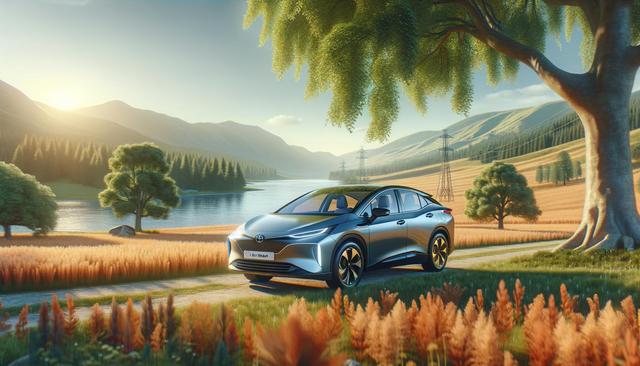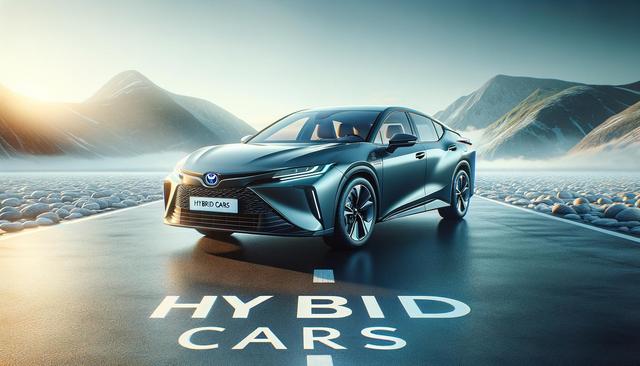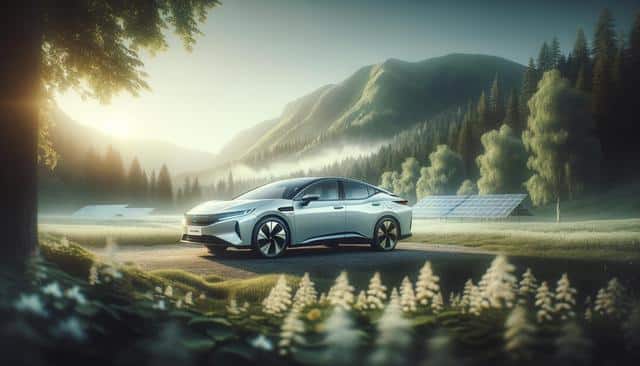What Are Hybrid Cars?
Hybrid cars are vehicles that combine two different types of power sources — typically a gasoline engine and an electric motor. This dual system allows the car to switch between power sources or use both simultaneously, depending on the driving conditions. The goal is to maximize fuel efficiency and reduce emissions, making hybrid cars a more sustainable choice compared to traditional gasoline-powered vehicles.
The main components include:
- Internal combustion engine
- Electric motor
- Battery pack
- Power control unit
Each of these parts works together to optimize performance, especially in stop-and-go traffic or city driving. Hybrid cars have different configurations such as series, parallel, and plug-in hybrids. Each type offers varying levels of efficiency and electric range, making them suitable for different driving habits and needs.
For those considering a transition to more efficient transportation, exploring hybrid options can be a great starting point. Learn more by visiting: https://go.jexli.com/postback?clickId={click_id}&payout={epayout}&p2={campaign}
Benefits of Driving Hybrid Vehicles
One of the key advantages of hybrid cars is their fuel economy. Because they can rely on electric power at low speeds or during idling, they consume less gasoline, which translates into lower costs for drivers. Additionally, hybrid cars produce fewer emissions compared to traditional vehicles, making them a more eco-conscious choice.
Some notable benefits include:
- Improved fuel efficiency
- Reduced greenhouse gas emissions
- Potential tax incentives and rebates
- Lower overall fuel costs
Drivers also appreciate the quieter operation of hybrid cars, especially in electric-only mode. This can make city driving more pleasant and less stressful. The regenerative braking system is another helpful feature, capturing energy during braking and using it to recharge the battery.
To explore more about hybrid vehicle advantages, visit: https://go.jexli.com/postback?clickId={click_id}&payout={epayout}&p2={campaign}
Common Misconceptions About Hybrid Cars
Despite their growing popularity, hybrid cars are still surrounded by several myths. One common misconception is that hybrids are underpowered. While early models may have lacked performance, modern hybrids offer competitive horsepower and torque, often matching or surpassing their gasoline-only counterparts.
Another myth is that the battery will need frequent replacement. In reality, most hybrid batteries are designed to last the life of the vehicle, often exceeding 100,000 miles with proper maintenance. Concerns about high replacement costs are largely outdated due to advancements in technology and extended warranties provided by many manufacturers.
Here are some other myths:
- They can’t be driven on highways – False
- Maintenance is more expensive – Not necessarily
- They aren’t suitable for cold climates – Modern hybrids perform well in various weather conditions
Knowing the facts can help drivers make informed decisions. For more details, check: https://go.jexli.com/postback?clickId={click_id}&payout={epayout}&p2={campaign}
How Hybrid Vehicles Work in Practice
Hybrid cars operate using an intelligent power management system. When driving at low speeds or idling, the electric motor powers the car. At higher speeds or during aggressive acceleration, the gasoline engine kicks in to provide the necessary power. In many hybrids, both systems can work together to provide a seamless driving experience.
Regenerative braking is another key feature. Instead of wasting energy during braking, the system captures it and stores it in the battery for later use. This process helps improve overall efficiency and extends the range of the electric motor.
Driving a hybrid requires minimal changes in habits. Most hybrids are equipped with automatic systems that manage energy use without driver intervention. However, adopting efficient driving styles—like smooth acceleration and braking—can maximize fuel savings.
To understand how hybrid systems function in real-world settings, visit: https://go.jexli.com/postback?clickId={click_id}&payout={epayout}&p2={campaign}
Choosing the Right Hybrid for Your Lifestyle
Choosing a hybrid car depends on your driving habits, daily commute, and budget. There are various models available, ranging from compact cars to SUVs, each offering different electric ranges, fuel economy ratings, and features. Plug-in hybrids, for example, allow you to charge the battery for extended electric-only driving, which can be ideal for short commutes or urban use.
Key factors to consider include:
- Daily mileage
- Access to charging stations (for plug-in hybrids)
- Seating and cargo needs
- Initial cost vs. long-term fuel savings
It’s also important to test drive different models to find one that suits your comfort and performance expectations. Many drivers find the transition to hybrid vehicles surprisingly easy and rewarding.
To compare options and find a model that fits your needs, check: https://go.jexli.com/postback?clickId={click_id}&payout={epayout}&p2={campaign}
Conclusion: Embracing the Hybrid Movement
Hybrid cars are a practical and efficient choice for today’s eco-conscious and cost-aware drivers. By combining the benefits of electric and gasoline power, they offer a balanced solution for reducing fuel consumption and emissions without sacrificing performance. Whether you’re commuting in the city or taking longer road trips, there’s likely a hybrid model that fits your lifestyle.
As technology continues to evolve, hybrid vehicles are becoming even more accessible, reliable, and diverse in their offerings. For those considering a more efficient and environmentally friendly way to drive, exploring hybrid options is a meaningful step forward. To begin your journey, visit: https://go.jexli.com/postback?clickId={click_id}&payout={epayout}&p2={campaign}



Leave a Reply